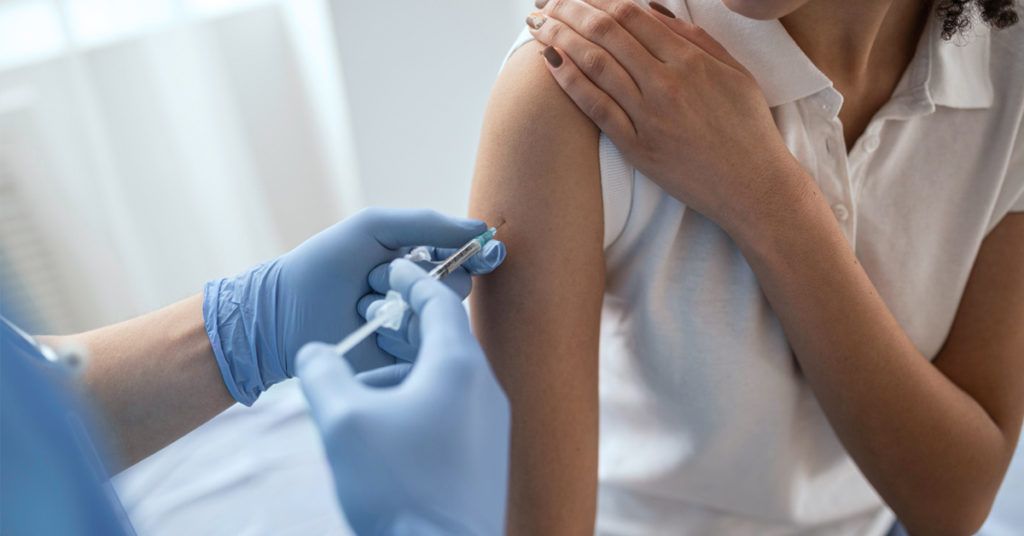Not Feeling Well After COVID Vaccination? Here is your Guide

Introduction
Before you think about dying from the COVID-19 vaccine, please know that it is normal to experience side effects from the vaccination. These side effects can include muscle pain, tiredness, headache, chills, fever and nausea. According to the World Health Organization, it is still unknown whether the COVID-vaccines can protect against the COVID-19 disease and also protect a person against the transmission of the COVID-19 virus. Nevertheless, getting the COVID-19 shot is still our best chance to move forward and freely from this pandemic dread.
So, take a deep breath and learn more about the aftercare for the COVID-19 vaccination.
What to Do
The common side effects can happen in the arm and can include pain, redness and swelling in the injection site. Most of these uneasy feelings occur in the body within the first three days after COVID-19 vaccination. They generally last for one to two days. There are some other disturbing indicators that you can possibly feel all throughout the body post vaccination. These signs are normal because the body regulates its normal physiologic function. This function being to fight against the foreign-invading material that enters the body.
Therefore, knowing your basic first-aid can save a lot of time and eliminate anxieties.
First, you can decrease the pain and discomfort in the injection site by applying a cool, wet washcloth or a cold compress on the area where you got the shot. You must press for at least two to five minutes, as needed. This is to promote vasoconstriction. Vasoconstriction aims for temporary narrowing of the blood vessels over that area. This narrowing results to gradual blood circulation and therefore, lessens the inflammation and pain. Another way to decrease pain in the jabbed area is to use or exercise the arm in aiming for good blood circulation.
Second, you can take non-steroidal anti-inflammatory drugs (NSAIDs) for any pain-related senses like headache or muscle pain. These drugs are allowed for as long as they are taken post-vaccination. Any pain relievers taken before the COVID shot can affect the body’s immune response to the vaccine, thus, defeating its purpose.
Third, in case of fever, it is advisable to drink plenty of water to prevent fluid loss and dehydration caused by increased body temperature. Antipyretics like paracetamol can be taken for fever episodes. However, it must only be taken to get rid of fever that lasts for one to two days. Any symptoms beyond the given duration must be consulted with a physician.
Fourth, watch out for possible warning signs of allergies. These allergies can range from a common redness, itchiness or swelling to any body part to as worst as difficulty of breathing or wheezing within the first four hours of the first vaccine dose. Allergies bring fear and distress after the COVID-19 vaccination, especially for those people who have history of allergic reactions to other vaccines and medications. Strict monitoring is necessary. These allergy signs need immediate assessment and care from the health care providers.
What Not to Do
First, do not get tattoos or piercings right after the COVID-19 vaccination. There is a possibility that the wounding caused by the tattoos or piercings can trigger the immunity response of the body.
Second, do not acquire any other vaccine around the same time of the COVID-19 inoculation. There are still pending studies about the reaction of COVID-19 shot when combined with other vaccines. It is better to re-schedule the other vaccination for some other time.
Third, do not push yourself to do heavy chores or to exercise. Your muscles might be feeling weak and painful after the vaccine. Take at least two days off to rest your body.
Fourth, do not put your guard down after the COVID-19 vaccination. Most of the vaccines need two shots to develop the immunity against the COVID-19 virus. Proper hand washing, wearing face masks and social distancing must still be observed. The immunity response will still happen only after two weeks of the first vaccination. Furthermore, it is still unknown how long the immunity will last to protect the vaccinated person.
There is still no 100% assurance that you will not transmit the virus. You can be temporarily immunized but you might still get infected and become the carrier of the COVID-19 variants. Keeping this in mind, it is also important to not lose your vaccine card. The vaccine card will serve as proof of your vaccination to be used in case of health emergency this pandemic.
Conclusion
All these information are for basic guidance only.
It is our personal health responsibility to get awareness about the possible side effects of the COVID-19 vaccine. This will manage our own expectations, such as our daily activities being interrupted because of the side effects. It is better to seek assistance from the doctor if your health continuously suffers after the COVID-19 vaccination. For immediate health consultation, you may contact Mypocketdoctor through their Facebook page and/or chat with their agents on their website www.mypocketdoctor.com. Likewise, you may check the Frequently Asked Questions (FAQs) through this link.
Reference:
- www.wcnc.com/covid-19-vaccine
- www.who.int
- www.cdc.gov
